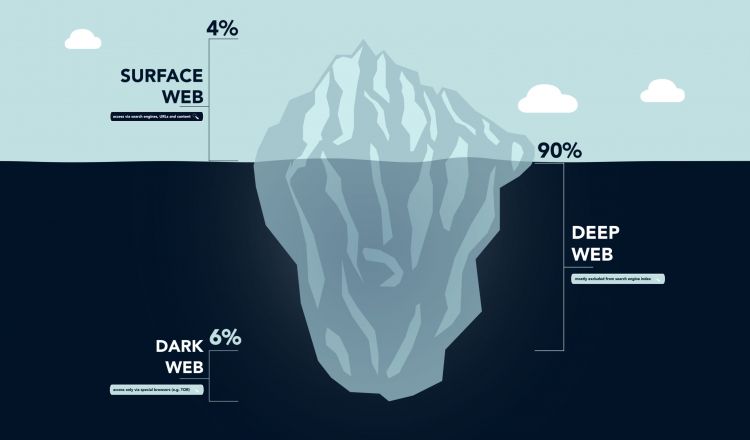Different Ways for Journalists to Protect Sources Using “Deep Web”
2021-12-07 09:14

Four ways journalists can protect sources using the “deep web”
By: Nathan Clarke-journalism.co.uk
These tools will help you hide from censors when reporting on and within authoritarian countries
Black markets, hackers for hire, illegal chat forums - to most people, the "deep web" is a murky corner of the internet.
It is also, however, a place to safely communicate with whistleblowers threatened by repressive regimes, allowing us to tell stories we may not otherwise be able to access.
According to Alan Pearce, author of Deep Web for Journalists, the “deep web" is the "greatest tool" we can use to safeguard vulnerable sources.
Here are four deep web tools you can use to protect your sources' anonymity online.
Tor
Originally developed by the US Navy for covert communication, The Onion Router (Tor) is a software that hides user's online footprints so their location is impossible to track down.
Reporters Without Borders recommends journalists use Tor when interacting with sources in repressive regimes. The software was used during the Arab Spring to evade censorship and smuggle protest and riot coverage to the international press.
When using any of the services and tools listed below, ensure to do so on the Tor network browser to remain safe.
Virtual Private Networks (VPN)
For journalists reporting on hostile territories, a VPN is a must. Essentially, a VPN disguises your IP address whenever you use the internet, making your location invisible.
Your internet provider and government agencies can see if you have downloaded Tor, which may be enough to raise suspicion. A VPN hides Tor traffic and allows you to remain hidden on the deep web.
When communicating with a source in a repressive environment who needs to remain anonymous, encourage them to use a VPN when browsing the web. Not only will this mask their location, it will also encrypt their messages and hide their IP address.
According to Michael Dagan, author of Online Privacy for Journalists: "VPN’s give you the perfect protection when someone is trying to retrieve your browsing history in order to profile you."
There are many free VPNs out there, though they have some downsides, including internal ads, data caps and lack of user support. Equally though, there are many paid-for VPNs which will not have these issues.
SecureDrop
SecureDrop is a whistleblower submission system that media organisations and NGOs can use to securely accept documents from anonymous sources around the world.
Without getting too technical, SecureDrop minimises metadata (such as the IP address of a source’s computer) and uses encryption (the process of encoding information) to protect their anonymity.
According to journalist Charles Berret, SecureDrop has “restored the possibility for journalists to protect sources whose communication devices might otherwise expose their identities.”
The tool is used by newsrooms around the world such as the Guardian and The Washington Post to expose wrongdoing and source information in hostile environments.
Encrypted messaging services
There are a number of encrypted deep web messaging tools journalists can use to provide sources with a secure means to disclose information.
In the UK, the Regulation of Investigatory Powers Act gives public authorities the power to access anyone's telephone and online communication history.
Under the act, journalists in the UK have been investigated by the Home Office and had their movement tracked.
Suelette Dreyfus, a privacy specialist at the University of Melbourne, recommends Ricochet (an anonymous messaging software) for any journalist undertaking investigative reporting.
Ricochet is open source (meaning anyone can check the code it runs on) and does not store users metadata because it uses the Tor network. It also does not require a phone number or any identification which may be linked to you.
"A journalist who does not know their source cannot be compelled to reveal that source," says Dreyfus, explaining that the tool makes it safer for sources to reveal wrongdoing to journalists.
If you are looking for other encoded messaging services outside the deep web, Signal and Telegram are also useful to protect your communication.









